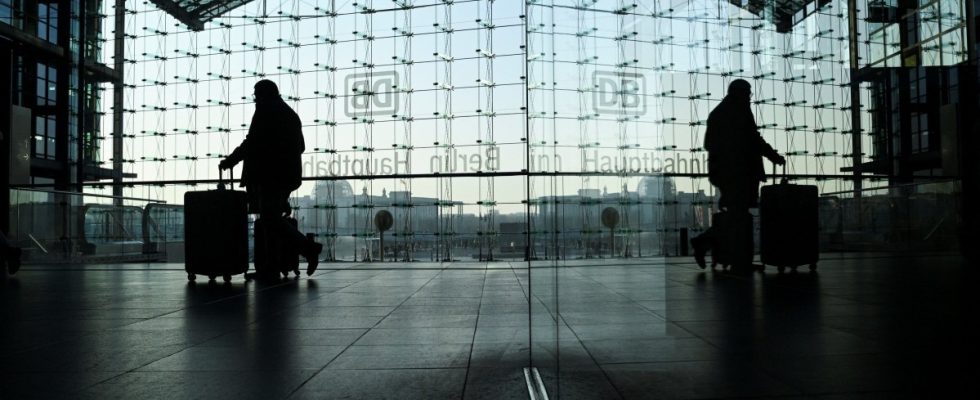Anyone who wanted to go on a trip to the world’s third-largest industrial country this week often only had the following options: a slow ride on a congested highway, a sweaty ride on a bicycle or a long walk. The train and the plane, on the other hand, the two preferred means of transport for medium and long distances, were usually not available because Deutsche Bahn, Lufthansa and several airports were on strike – again and this time at the same time.
In recent days, some German citizens have probably had a feeling like this The New Zurich Times in his usual traffic light-critical comment: Germany, it was said, had become “in the truest sense of the word a republic of stagnation”. “In the country that has long been admired as a haven of reliability and the home of the conscientious, Italian or Greek conditions now prevail in many corners. The strike by train drivers and Lufthansa employees is a symbol of this new German immobility,” wrote the editorialist . The standstill is not limited to railway lines and flight routes; rather, the Berlin government district has also appeared to be “paralyzed” for months in view of the countless lazy compromises made by the SPD, Greens and FDP.
Now not even the traffic light coalition members themselves would claim that they have governed the country efficiently and quietly so far. Nevertheless, the question arises as to whether, given the recent wave of strikes, it is actually the case that a once prosperous industrial country is being systematically ruined – or is it more of a coincidence.
Measured against GDP, the damage caused by one day of strike is 0.002 percent
If you believe Hagen Lesch, labor expert at the Cologne Institute of German Economics (IW), there are currently a lot of collective bargaining conflicts, but no more than last spring. “We are currently badly affected because there are a lot of strikes in the transport sector. However, it has not yet been statistically proven that there are more industrial disputes than before,” he said Business Week. However, strikes are taking place earlier today than in collective bargaining disputes of past decades. In addition, warning strikes no longer lasted hours, but days.
From an overall economic perspective, the damage caused by the labor disputes has so far been hardly significant. According to a conservative estimate by the IW, a day of strike in train traffic costs around 90 million euros. Those most affected are the train itself, hotels and restaurants whose guests cannot travel, and station shops that cannot sell sandwiches or magazines. As painful as this is undoubtedly for one or two business owners, such a day has little impact on the German economy: With an annual gross domestic product (GDP) of 4.1 trillion euros, a loss of 90 million euros corresponds to a share of a good 0.002 Percent.
Of course, all of this doesn’t mean that many travelers aren’t justifiably angry about the train and flight cancellations. On Friday, the train drivers’ union GDL continued its 35-hour strike, which had already begun the day before, with which it wants to force the introduction of the 35-hour week with full wage compensation for its members. A large proportion of train connections were canceled accordingly. Even after the strike ended, significant disruption was still expected. It will probably take until Saturday morning for regional and long-distance traffic to return to normal, the railway said. Regional and S-Bahn traffic was also affected. Travelers were advised to check the current timetables online.
The railway offers the GDL the resumption of collective bargaining
Air traffic was also further disrupted because Lufthansa ground staff continued their warning strikes that began on Wednesday. In Cologne/Bonn and Düsseldorf, for example, all flights to Munich and Frankfurt planned for Friday were canceled; in total, according to a spokesman, the group had to cancel around 1,000 flights. The Verdi service union wanted to continue the strike until Saturday morning at 7:10 a.m., so Lufthansa expected delays and some cancellations for the beginning of the weekend. Air traffic will then return to normal during Saturday morning, it said. The warning strike by security staff at various companies, which led to long queues at the X-ray gates on Thursday and placed additional strain on operations at the airports, ended on Friday night.
There was also movement in the tariff dispute at the railway on Friday, at least a little: the railway invited the GDL to resume the canceled collective bargaining negotiations on Monday – in the “familiar rooms in the main station in Berlin”.

